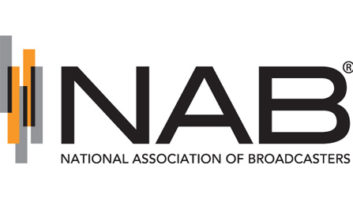Radio stations — and indeed the whole industry — deserve effective, unambiguous guidance on what happens if deadlines set by the Federal Communications Commission are missed.
That is the opinion expressed by Commissioner Michael O’Rielly, who has been vocal over the past few weeks about changes he would like to see in commission processes.
In a Feb. 8 blog post, O’Rielly said that for rules and procedures to be truly effective, there needs to be clear guidance on what will happen if licensees miss deadlines. It’s time, he said, for a universally applied policy that removes ambiguity. Not only is that not the case, he said, “but the commission’s inconsistency with how it responds to late filings borders on arbitrary and capricious.”
He said some bureaus are far more forgiving than others about deadlines are treated. He said certain bureaus have quickly cancelled commission-issued licenses that are not in compliance and, in one case, dismissed a petition for reconsideration that was filed a day late.
On the other hand, he cited the example of WAJM(FM) in Atlantic City, N.J. The Media Bureau moved to renew authorization of the station, which is owned by the Atlantic City Board of Education and operated by students of Atlantic City High School, “even though the licensee failed to file the required paperwork until four years after the conclusion of its term,” O’Rielly said. “Given the circumstances [in the case], I supported the item’s outcome, but why was it allowed to come to this?”
He also offered examples of uneven deadline policies at the Wireless Telecommunications and Public Safety and Homeland Security Bureaus.
O’Rielly acknowledged that special circumstances can arise, and said the commission can issue a waiver. “Things happen in the real world, outside the control of the affected party, which may prevent complying with specific requirements by a set date.”
But exercising a thoughtful and judicial waiver is a far cry from having multiple and competing standards, practices or understandings about what happens when a deadline is missed, he said. “[T]he lax deadline approach means that, in some circumstances, there is no need to get to the waiver stage, since missing a deadline is ultimately acceptable in one form or another.”
The Republican commissioner said it was time for leadership to compose a firm policy. “[This] would improve commission functionality, bring clarity to regulated entities and help stabilize our overall enforcement mechanisms,” he said.
His suggested changes include greater emphasis on self-reporting. “The past commission’s approach to enforcement matters … discouraged regulated entities from self-reporting any instances where they may be out of compliance,” he said. “When enforcement turns into a game of gotcha, there really isn’t much desire by parties to voluntarily poke their heads up.”
O’Rielly suggested a short, defined window for companies to report instances in which they are not in compliance with the rules. This type of enforcement amnesty window will allow everyone to get back within bounds. The window would not apply to intentional non-compliance or violations that resulted in direct harm to consumers, he said, but rather certain licensing and deadline matters that can be easily rectified.
Such an approach is not without precedent, O’Rielly said, pointing to a 60-day amnesty window the commission opened in 2003 for unregistered antenna structures. In any case, the time has come for the commission to stop unintentionally favoring some parties over others through disparate treatment, he said. He believes his changes can “restore administrative certainty, transparency, parity, and confidence in our enforcement process.”
On a separate process item, Chairman Ajit Pai said Thursday that he agrees with O’Rielly’s concerns about “editorial privileges” in which the commissioners routinely give bureaus and offices the power to make changes to documents that the commissioners have already voted upon. O’Rielly thinks the practice is being extended to substantive











